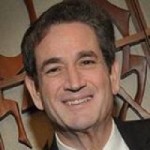By Rabbi Ben Kamin

OCEANSIDE, California — Sen. Robert F. Kennedy, only 42, was shot several times in the kitchen of the Ambassador Hotel in Los Angeles just before midnight on June 4, 1968. He had just won the California Democratic presidential primary and seemed destined for the nomination. He lingered through the next day, but the wounds proved fatal and he died early in the morning of June 6. He was buried next to his brother, the also-martyred President John F. Kennedy, on June 8.
It was ironic that RFK was seen and beloved as the moral successor to Martin Luther King Jr., who was gunned down just eight weeks earlier in Memphis during that dreadful, heaving year. “Bobby,” as we called him, had always been considered ruthless, single-minded, and impertinent—because he was. But that all changed after he lost his alter-ego John Kennedy, to assassination on November 22, 1963.
Something happened within the broken soul and slight body of Robert F. Kennedy. Harry Belafonte who has been among those close to the scene of all this history, so much of it driven by the personal vicissitudes of life. He sympathetically wrote about the discernible change in Robert Kennedy that evolved in the shadow of his brother’s assassination.
Although it was not immediate, some people close to Bobby had observed it in unexpected patches even while Jack was alive: Robert Kennedy, the vivacious father of eleven children (though one was born after Kennedy’s death on June 6, 1968), did have a well of compassion within him.
Belafonte declares that, in the wake of Kennedy’s accelerated and emotional visits among the nation’s poor and outcast, from the urban ghettos of the North to the hunger-ridden towns of Mississippi—all of which became the tapestry of Kennedy’s short-lived run for the presidency in 1968—“Bobby had been transformed.” Belafonte was one of the people who prompted Kennedy to run in 1968 and he notes that “the days of wondering how we might find access to his moral center were long gone.”
Many historians have expounded upon the deepening of Robert Kennedy that occurred after he lost his brother. There are innumerable accounts of his midnight jaunts over the fence at Arlington National Cemetery, sometimes alone, sometimes with a trusted friend, where he would spend hours in prayer over the president’s grave. The eternal flame would capture the unspeakable woe etched permanently into the taunt face, tears poured out of his hollow eyes, and even his thick, wavy shock of hair would appear wracked and hopeless.
Kennedy, always thin, became agonizingly gaunt, a despondent reed of a man once obsessed with details who now sat staring out the window at meetings and conferences. He was known to disappear on solitary walks through Washington at all hours of the day or night; he donned his late brother’s jackets and cuff-links and even transferred his papers into one of John’s favored carry-cases. A number of Dr. King’s associates have commented to me about prophetic attributes that emerged in RFK as he jaunted through his brisk 72-day run for the presidency.
Robert Kennedy was suffering; no one or anything could reach him—so profound and extreme was his bereavement. The two brothers had been physically and spiritually inseparable, each other’s sealed confidantes and absolute protectors. Bobby was Jack’s supreme adviser, a kind of guru who nonetheless willingly and dutifully subsumed his own ambitions and even his career in favor of the exalted older sibling who had fulfilled the family mission of the presidency.
Once coldly gripped with facts, figures, specifics, and certainly with vendettas, Kennedy became the soft-spoken reciter of the Greek tragedian, Aeschylus. Time and again, reflecting on his brother’s death and then later upon other catastrophic situations (including the murder of Martin Luther King), Kennedy would mournfully invoke the ancient playwright’s famous axiom: “Even in our sleep, pain which cannot forget falls drop by drop upon the heart, until in our own despair, against our will, comes wisdom through the awful grace of God.”
From the receding hill of today’s America, we can only lament: “Oh my, what could have been.”